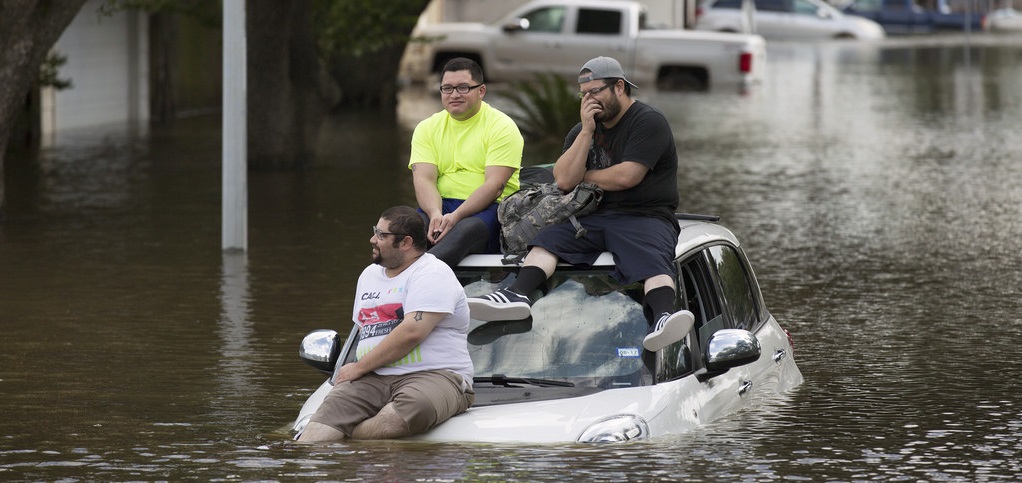Climate Change and Traumatic Stress Disorder

I have heard Rev. Jim Antal, President of the Massachusetts Conference, mention that we would be dealing with grief with climate change. I agreed with him, and now I want to further nuance his insight. The grief from climate change can border on trauma. The latest severe climate events of 2016 with the three hurricanes and the fire-storms indicate what will be the new normal for the United States. I met a woman and her family who lost their home and all their possessions in the California Northbay fires in October at a Christmas party. As I engaged her in conversation, I found myself having a flashback to the traumatic years of the AIDS epidemic in 1980s and early 1990s when I lost over a hundred friends. I lost my spouse Frank and my brother to HIV on the same day. I noticed in the woman an emotional numbing, ongoing memories of fleeing in the middle of night to escape the fires, an inability to focus on the present, a sense of helplessness, depression, a sense of meaninglessness, suffering, and the lack of hope. In listening and attempting to be fully present, I mirrored back her traumatic feelings and asked her about support groups for herself. In November, my husband Joe, an Interim Pastor at United Church of Christ (UCC) Petaluma, spent a day assisting families to return to the burnt out remains of their homes. He functioned as a chaplain to these traumatized families of climate disaster. The UCC churches in the Northbay area stepped in with many community organizations to provide assistance.
The fact that severe weather events and catastrophes will only increase motivates me pastorally and as a member of the UCC Council for Climate Justice to write this piece. I recommend that our clergy or lay folks participate in disaster relief training programs or climate change and trauma workshops. Climate disasters and trauma will become a common feature of living in today’s world.
For myself in dealing with the trauma of personal massive loss during the AIDS epidemic and with the firestorms of Northbay, I recommend a practice of personal and spiritual accompaniment. I take the following insight from Henri Nouwen, Out of Solitude:
The friend who will be silent with us in a moment of despair or confusion, who can stay with us in our hour of grief and bereavement, who can tolerate not-knowing, not healing, not curing, not healing and face with us the reality of powerlessness that is a friend who cares.
Those who sit in silence with fellow human beings not know knowing what to say but knowing that they should be there, can bring new life in a dying heart.
I am suggesting that fundamental to all outreach to the traumatized refugees of climate disasters is a spiritual practice of accompaniment. From there, we can listen to discern their practical needs and bring our resources of church and community to assist. But our pastoral responsibility as clergy and laity is to practice a “being with.”
Related News
Can a Small Church Make a Difference on Environmental Justice? Yes!
American anthropologist Margaret Mead once observed, “Never doubt that a small group of...
Read MoreChurch Launches Community Composting Opportunity
Coral Isles Church in Tavernier, Florida recently kicked off a community composting...
Read MorePostcards for the Planet: Engaging Environmental Voters This Election Season
During this election season, the Green Christians at the Coral Gables United Church of...
Read More
